Tiếng Anh 7 iLearn Smart World Unit 6 Từ vựngTổng hợp từ vựng Unit 6. Education Tiếng Anh 7 iLearn Smart World LESSON 1 1. (v): từ chối Can you decline invitations and express obligations ? (Bạn có thể từ chối lời mời và thể hiện nghĩa vụ không?) 2. (n): dự án Thanks, but I'm sorry, I can't. I have to finish my project. (Cảm ơn, nhưng tôi xin lỗi, tôi không thể. Tôi phải hoàn thành dự án của mình.)  3. (n.phr): báo cáo sách I can't. I have to finish my book report by Friday. (Tôi không thể. Tôi phải hoàn thành báo cáo sách của mình trước thứ sáu.) 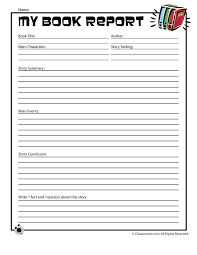 4. (n): buổi thuyết trình Ellen gives her presentation tomorrow. (Ellen có buổi thuyết trình vào ngày mai.)  5. (v.phr): chơi bowling I like going bowling on the weekends. (Tôi thích đi chơi bowling vào cuối tuần.)  6. (v): đồng ý I totally agree with you on this matter. (Tôi hoàn toàn đồng ý với bạn về vấn đề này.)  7. (v.phr): xem một bộ phim Do you want to watch a movie tonight? (Bạn có muốn xem một bộ phim tối nay?)  8. (v.phr): làm bài tập My teacher told me to do my homework. (Giáo viên bảo tôi làm bài tập.)  9. (v.phr): dọn phòng I don't have to clean my room. (Tôi không phải dọn phòng của mình.)  10. 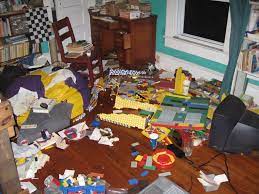 11. allow someone to do something /əˈlaʊ ˈsʌmwʌn tuː duː ˈsʌmθɪŋ/ (v.phr): cho phép ai đó làm gì The teacher allowed her to do it next week. (Cô giáo cho phép cô ấy làm chúng vào tuần tới.) 12. 13. 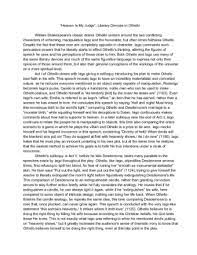 14. (n): trung tâm mua sắm Do you want to go to the mall on Friday night? (Bạn có muốn đến trung tâm mua sắm vào tối thứ sáu không?)  LESSON 2 15. (v): trượt She is really annoyed because I failed some of my tests. (Cô ấy thực sự khó chịu vì tôi đã trượt một số bài kiểm tra của mình.) 16. (adj): vui I’m pleased when I can pass the exam. (Tôi rất vui khi tôi có thể vượt qua kỳ thi.)  17. (adj): thất vọng They're so disappointed because they failed all their tests. (Họ rất thất vọng vì họ đã trượt tất cả các bài kiểm tra của họ.)  18. (adj): ngạc nhiên I'm so surprised because I studied a lot before the tests. (Tôi rất ngạc nhiên vì tôi đã học rất nhiều trước khi kiểm tra.)  19. (adj): vui Dad was delighted because I passed my P.E. test. (Bố rất vui vì tôi đã đậu bằng P.E. kiểm tra.)  20. (adj): khó chịu She is really annoyed because I failed some of my tests. (Cô ấy thực sự khó chịu vì tôi đã trượt một số bài kiểm tra của mình)  21. (v): đậu Dad was delighted because I passed my P.E. test. (Bố rất vui vì tôi đã đậu bằng P.E. kiểm tra.) 22. (n): áo len Thank you for the sweater and the gift card for Christmas. (Cảm ơn bạn vì chiếc áo len và thẻ quà tặng nhân dịp Giáng sinh.)  23. (n): tuần lộc Green is one of my favorite colors and the reindeer is very cute. (Màu xanh lá cây là một trong những màu yêu thích của tôi và chú tuần lộc rất dễ thương.)  24. (n): sinh học I didn't do well in math, English, history, and biology. (Tôi không học tốt các môn toán, tiếng Anh, lịch sử và sinh học.)  25. (n.phr): mẩu tin I think she could use a piece of news like that today. (Tôi nghĩ hôm nay cô ấy có thể sử dụng một mẩu tin như thế.) 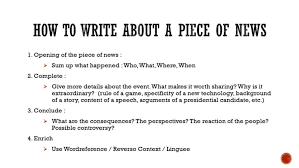 26. let someone do something /lɛt ˈsʌmwʌn duː ˈsʌmθɪŋ/ (v.phr): xin phép ai đó làm gì Can you maybe ask mom to let me buy a new game? (Con có thể xin mẹ cho con mua một trò chơi mới được không?) 27. (n): bóng rổ I'm not sure, but my teacher might put me on the basketball team. (Tôi không chắc, nhưng giáo viên của tôi có thể đưa tôi vào đội bóng rổ.)  28. (n): môn học What subjects do you find the easiest? ((Bạn thấy môn học nào dễ nhất?)  29. (adj): tức giận He's so happy because he passed his test. Why are you so angry? (Anh ấy rất hạnh phúc vì anh ấy đã vượt qua bài kiểm tra của mình. Tại sao bạn lại tức giận như vậy?)  30. (adj): khó chịu I'm really upset because I failed my math test. (Tôi thực sự khó chịu vì tôi đã trượt bài kiểm tra toán của mình.)  31. (n): địa lý Geography is not an easy subject. (Địa lý không phải là một môn học dễ dàng.)  LESSON 3 32. (v.phr): du học What do you think is good or bad about studying abroad? (Bạn nghĩ du học tốt hay xấu?) 33. (n): đại học What does the teacher say universities give students? (Cô giáo nói gì về việc trường đại học cho sinh viên những gì?)  34. (n): trải nghiệm Did Anna have more good or bad experiences during her time in Spain? (Anna có thêm trải nghiệm tốt hay xấu trong thời gian ở Tây Ban Nha?) 35. (n): tiếng Tây Ban Nha My Spanish is so much better after a year in Spain. (Tiếng Tây Ban Nha của tôi đã tốt hơn rất nhiều sau một năm ở Tây Ban Nha.) 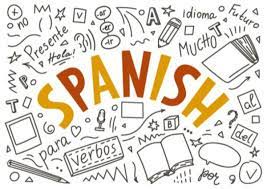 36. (phr.v): chăm sóc Although it wasn't easy living alone, I quickly learned how to take care of myself. (Mặc dù cuộc sống một mình không dễ dàng nhưng tôi nhanh chóng học được cách chăm sóc bản thân.)  37. public transportation /ˈpʌblɪk ˌtrænspɔːˈteɪʃən/ (n.phr): phương tiện công cộng They showed me how to use public transportation and where to eat. (Họ chỉ cho tôi cách sử dụng phương tiện công cộng và ăn ở đâu.)  38. (v.phr): sống một mình Although it wasn't easy living alone, I quickly learned how to take care of myself. (Mặc dù cuộc sống một mình không dễ dàng nhưng tôi nhanh chóng học được cách chăm sóc bản thân.) 39. (phr.v): thức dậy I woke up early. I missed the bus. (Tôi thức dậy sớm. Tôi đã bỏ lỡ chuyến xe buýt.)  40. (v.phr): bị lạc I had a great time in France. However, I did get lost sometimes. (Tôi đã có một thời gian tuyệt vời ở Pháp. Tuy nhiên, đôi khi tôi đã bị lạc.)  41. (adj): cô đơn She had a great time, although she was lonely at first. (Cô ấy đã có một khoảng thời gian tuyệt vời, mặc dù lúc đầu cô ấy rất cô đơn.)  42. (n): tiếng Pháp Although she could speak French, her writing was bad. (Mặc dù cô ấy có thể nói tiếng Pháp, văn của cô ấy thật tệ.)  43. (v.phr): kết bạn However, making friends was difficult at first. (Tuy nhiên, việc kết bạn lúc đầu rất khó khăn.) 
|















